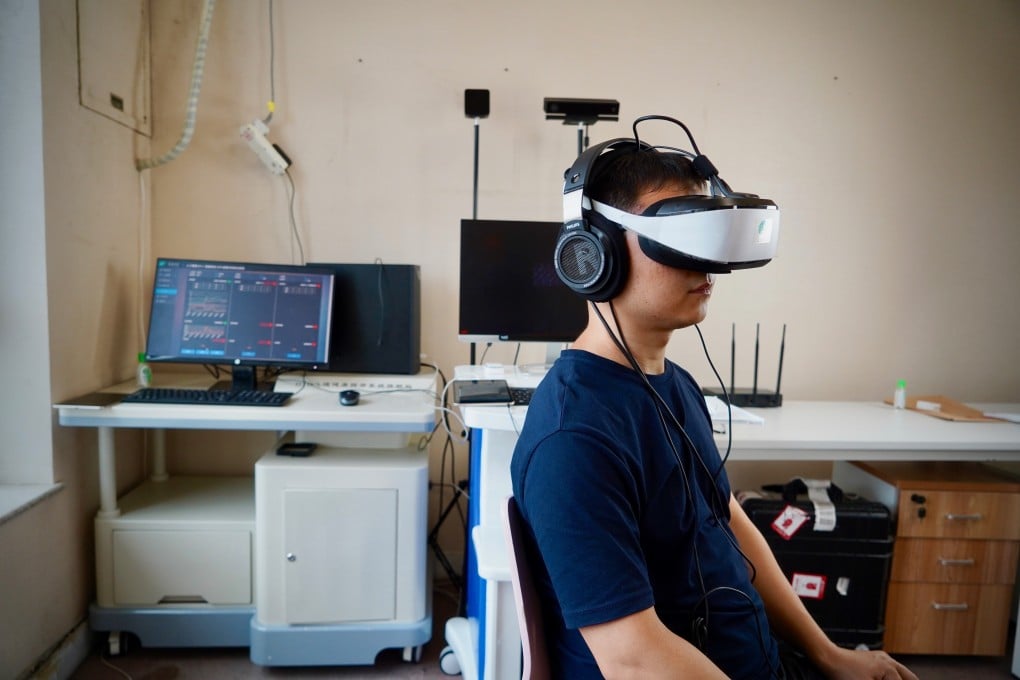How AI-backed virtual reality experience is helping drug addicts stay clean
- China has about 2.4 million drug users, less than 0.2 per cent of its total population, with over half having a history of using methamphetamine
- The company claims an accuracy rate of over 90 per cent in detecting drug addiction

You are in a black sedan parked in a dimly-lit alley at night. In the passenger seat a female, dressed in white top and jeans, asks if you want to share some meth. She lights up and smoke fills the interior. Seemingly out of nowhere, a second meth inhaling device appears.
The scenario may sound real enough but it is an immersive virtual reality (VR) experience designed to determine how prone the participant is to drug use by tracking their pulse, brainwaves and the electrical conductance of the skin.
Using artificial intelligence that combines the responsive patterns from over 10,000 addiction cases, the system generates a drug craving score, according to Li Dai, founder and chief executive of Beijing-based start-up WonderLab, developer of the technology.
The company is working with rehabilitation centres in more than 10 Chinese provinces and municipalities including Shandong, Sichuan, Yunnan, Beijing and Chongqing, to apply the AI-enabled assessment as a follow-up to addiction treatment.
WonderLab also plans to introduce the technology to Southeast Asia and is in discussion with Cambodian authorities for its use in that country.
“Put simply, it can be seen as a polygraph for drug addiction,” said Li, a Peking University graduate in psychology and cognition. “Previously, evaluations mainly came from questionnaires, which are not only subjective but cannot be quantified, a bit like diagnosing a fever by feeling the skin instead of using a thermometer.”